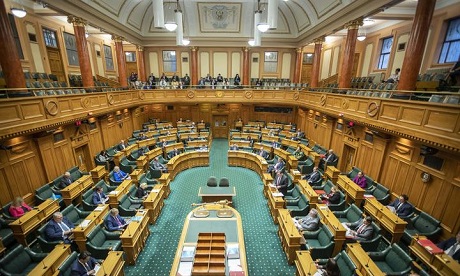New Zealand’s Catholic bishops and the new law on conversion therapy are in sync.
The bishops’ submission to parliament supported the bill’s aims as being in line with the Catholic Social Teaching principles of human dignity and the common good.
“Any harmful, coercive or abusive practice under any name is abhorrent to the Church and the Gospel of Jesus Christ,” they explained.
The Bill was passed into law on Tuesday.
During the Committee stages of the legislative process, the bishops expressed some concern about the role parents play in bringing up children.
“We would not wish to see parents and advisers to young people restricted in giving advice consistent with both moral theology and Catholic Social Teaching out of fear of being seen to be breaking the law,” they said.
However, during the third reading, National’s Paul Goldsmith asked specifically about whether the bill would end up inhibiting such discussions.
In response, Minister of Justice Kris Faafoi said protections in the law will ensure “open and respectful” conversations can still take place in households while covering parents who did take active steps to suppress or change their child’s identity.
He also said general expressions of religious beliefs or principles about sexuality and gender will not be captured.
“This legislation is not looking to criminalise open and respectful conversations which aim to facilitate help and support where someone is wrestling with their sexuality.”
The Justice Select Committee received nearly 107,000 public submissions on the legislation – the highest number ever received on a piece of legislation in New Zealand.
The law and penalties
It will be an offence to perform conversion therapy practices on a child or young person aged under 18, or on someone with impaired decision-making capacity. Such offences will be subject to up to three years in prison.
It will also be an offence to perform conversion practices on anyone – irrespective of age – where the practices have caused serious harm, and offenders can be subject to up to five years imprisonment.
The Attorney-General must sign off on prosecutions.
Survivors and victims may seek redress from the Human Rights Commission (HRC) or the Human Rights Review Tribunal (HRRT).
The bill still needs to be signed off by the Governor-General for Royal Assent and will come into force six months later.
Ongoing concerns
Family First’s Bob McCoskrie warns “the law will have a chilling effect on families, freewill, and faith-based communities”.
He is concerned it will criminalise certain expressions of parental love, prayer, personal choice and preaching.
Sources
- NewsHub
- FamilyFirst (supplied)
- OneNews
- NZ Catholic Bishops’ Conference
- Image: RNZ
